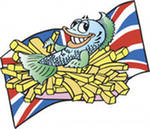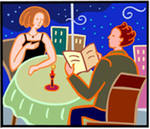Read with pleasure at the lessons as well as at home
Read the text about a race of frogs. Some sentences have been removed from the text. Your task is to fill the gaps with the omitted sentences from the list A-F.
Text 1
Success comes but only to persistent
Once upon a time there was a race of frogs. The goal was to 1.___ . Many people gathered to see and support them. So, the race began. In reality, the people probably 2.___ that the frogs reached the top of the tower, and all the phrases that one could hear were of this kind: “What a pain! They’ll never make it!” the frogs began to resign, except 3.___ . But the people went on: “What a pain! They’ll never make it!” 4.___, except for the frog who continued to insist.
At the end, all the frogs quitted, except the one, who, alone and with enormous effort, reached the top of the tower. 5.___ how he did it. One of them approached him to ask how he had done it, to finish the race. And discovered that he … was deaf!!!
Never listen to people who 6.___ because they steal the best aspirations of your heart!
Always remind yourself the power of the words that you hear or read. That’s why, you always have to think positively! Always be deaf to someone who tells you that you can’t and won’t achieve your goals or make your dreams come true.
A: And all the frogs admitted defeat
B: didn’t believe that it was possible
C: The others wanted to know
D: reach the top of a high tower
E: have the bad habit of being negative
F: for one who kept on climbing
Read the text below. I. Fill in the gaps (1-13) with the correct forms of the words in brackets:
Text 2
Luxurious restaurant
 Once a 1. ___ (new) married couple came to a restaurant 2. ___ (to have) a delicious dinner.
Once a 1. ___ (new) married couple came to a restaurant 2. ___ (to have) a delicious dinner.
“What will you take, honey?” 3. ___ (to ask)the husband.
“Oh, I 4. ___ (to like) to have fish just like last Sunday and you, darling?” 5. ___ (to say) the wife.
“It’s just the same to me, let it 6. ___ (to be) fish,” answered the man.
When they 7. ___(to begin) eating she 8. ___ (to say):
 “I don’t like it, it is not tasty.”
“I don’t like it, it is not tasty.”
“Here, waiter,” 9. ___ (to call) the husband. “It 10. ___ (to seem) to us that this fish is not as fresh today as the fish you served us two weeks ago.”
The waiter 11. (to look) at them, then examined the cooked fish 12. ___(care) and at last gave them the answer:
“I beg your pardon, sir, but this is the very same fish you 13. ___ (to eat) at our restaurant a fortnight ago.
II. Choose the sentences which correspond to the text:
1.A couple went to the restaurant as they were hungry.
2.They ordered different meals.
3.The husband was the first who didn’t like fish.
4.The waiter tried to cheat them.
III. Match the words with their descriptions. There is one variant you don’t need to use:
1)a fortnight a)talking to someone you love
2)delicious b)with a pleasant taste or smell
3)darling c)people who are married
4)couple d)a man who serves food in a restaurant
5)waiter e)two weeks
Read the text below. I. Fill in the gaps (1-13) with the correct forms of the words in brackets:
 Text 3
Text 3
A witty Englishman
 Once a young Englishman 1. ___ (to invite) his girl-friend to a 2. ___ (France) restaurant. The menu 3. ___ (to write) in French but, of course, he 4. ___ (not to know) that language.
Once a young Englishman 1. ___ (to invite) his girl-friend to a 2. ___ (France) restaurant. The menu 3. ___ (to write) in French but, of course, he 4. ___ (not to know) that language.
As he 5. ___ (not want) to look 6. ____ (ignorance) before the girl he 7. ___ (to point) to some lines in the menu and 8. ___ (to say) to the waiter:
“I think we 9. ___(to have) some of that.”
The waiter 10.___ (to look) where the man 11. ___(to point) and then 12. ____ (to say):
“I am sorry, sir, but that 13. ____ (to be) what the band is playing!”
II. Choose the sentences which correspond to the text:
1.The Englishman could speak French fluently.
2.He didn’t want to show that he didn’t know that language.
3.The menu was written in French.
4.The went to the English restaurant.
III. Match the words with their descriptions. There is one variant you don’t need to use:
1)menu a)building were meals and drinks are sold
2)band b)not knowing something
3)ignorant c)to ask someone to spend time together
4)restaurant d)a small group of musicians
5)to invite e)a list of the food that is available
Read the text below. I. Fill in the gaps (1-13) with the correct forms of the words in brackets:
 Text 4
Text 4
The unhappy man
A London newspaper 1.___ (publish) a case of suicide, in which the 2.___ (reason) that moved the unhappy man to lay violent hands upon himself were 3.___ (find) in the shape of a letter in his left boot. In this letter he 4.___(write):
“I married a widow who had a grown-up daughter. My father visited us 5.___ (frequent), fell in love with my step-daughter, and 6.___ (marry) her. Thus my own father became my son-in-law, and my step-daughter, 7. ___ (be) the wife of my father, became my mother. After some time my wife 8.___ (present) me with a son,-of course, he was my father’s brother-in-law and my uncle, for he was the brother of my step-mother.
My father’s wife, that is my step-daughter, 9.___ (have) also a son, -of course, he was my brother, but at the same time he was also my grandson, for he 10.___ (be) the son of my daughter. My wife was also my grandmother, 11.___ (be) the mother of my mother.
I was the husband of my wife, but at the same time also her grandson, and since the husband of my grandmother is 12.___ (natural) also my grandfather, I am my own grandfather! … I should like to see the man who 13.___ (can) bear all this.”
II. Choose the sentences which correspond to the text:
1.The man didn’t want to live because of the terrible situation.
2.He married a woman whose husband had died.
3.Soon he became a step-father.
4.He was a son-in-law of his own wife.
III. Match the words with their descriptions. There is one variant you don’t need to use:
1.suicide a)involving the use of physical force
2.husband b)the action of deliberately killing yourself
3.reason c)a ceremony when 2 people become husband a 4.marry and wife
5.violent d)to kill somebody by mistake
e)a fact that explains why something happened
f)the man that a woman is married to
Read the text below. I. Fill in the gaps (1-13) with the correct forms of the words in brackets:
 Text 5
Text 5
It had been a bee
One day, when Mr. Smith 1.___ (come) home from work, he found his wife very 2.___ (annoy) about something. Mr. Smith always thought that he was more sensible than his wife, so he started to 3.___ (give) her a lecture on the 4.___ (important) of always remaining calm.
 Finally he said, “It’s a waste of your strength to get 5.___ (excite) about small things. Train yourself to be patient, like me. Now, look at the fly that just 6.___ (land) on my nose. Am I getting excited? Am I 7.___ (swear) or 8.___ (wave) my arms around? No, I’m not. I’m 9.___ (perfect) calm.”
Finally he said, “It’s a waste of your strength to get 5.___ (excite) about small things. Train yourself to be patient, like me. Now, look at the fly that just 6.___ (land) on my nose. Am I getting excited? Am I 7.___ (swear) or 8.___ (wave) my arms around? No, I’m not. I’m 9.___ (perfect) calm.”
Just as he had said this, Mr. Smith started 10.___(shout). He jumped up and began to wave his arms 11.___ (wild) and swear 12.___ (terrible). He 13.___ (cannot) speak for some time, but at last he was able to tell his wife: the thing on his nose hadn’t been a fly, it had been a bee.
II. Choose the sentences which correspond to the text:
1.The husband persuaded his wife he was quite patient.
2.The man was rather sensible.
3.He decided to give a lesson to his wife.
4.At the end of the story the man found a wit answer on his reaction.
III. Match the words with their descriptions. There is one variant you don’t need to use:
1.fly a)the person who is fond of irritating others
2.sensible b)a flying insect that can sting you
3.calm c)a common small insect with wings
4.wave d)reasonable and practical
5.bee e)to move your hand to say hello or goodbye or as a signal
f)a state in which you are not affected by strong emotions such as excitement, anger or fear


про публікацію авторської розробки
Додати розробку
